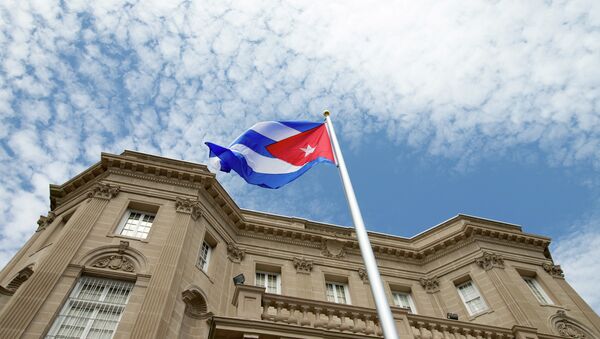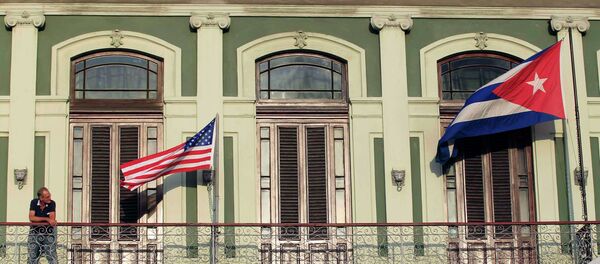"It’s not going to be easy, but I don’t think we are going to see the embargo remain in place beyond two or three more years." Freyre said.
The future of the sanctions, in place since 1961, was now in doubt for the first time, the expert continued.
"I think that we are now at cross roads because now the business community in the United States is very interested in having this change and when that happens, things begin to move," she said. "This is after all a capitalist country."
Freyre, who immigrated to the United States from Cuba in the 1960’s and hopes to conduct business in there once the embargo is lifted, said she believed the embargo will be removed in the coming years.
"I think there’s a lot of business interests pushing [to lift the embargo] and if you couple that with… the fact that the policy has really run its course, there’s really no place to go with this," she explained.
On Friday, US Secretary of State John Kerry attended the flag-raising ceremony at the US embassy in Havana where he met with Cuban officials.
"There are a lot of incumbents in Congress that have been getting a tremendous amount of money in contributions by people who don’t want this policy changed," Freyre noted.
In December 2014, Obama announced plans to normalize relations between the United States and Cuba after ties were severed by Washington during the Cold War for more than five decades.
Washington and Havana re-established diplomatic relations by opening embassies in their respective cities on July 20, 2015.
The Foundation for the Normalization of US-Cuba Relations is a non-profit educational organization whose mission is to provide realistic information about the advantages of civil, respectful and normal relations between the United States and Cuba, according to its website.



